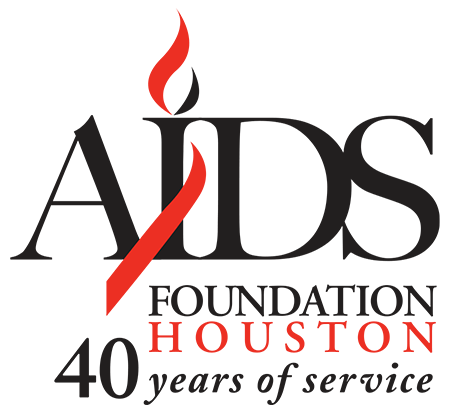Health Services
Make an Appointment
AFH offers free and confidential HIV/STI testing onsite at our Westpark location, from home with the AFH B.E.S.T. Box kits and telehealth appointments, and in the community with partner organizations and local businesses.
Along with free testing, we offer free STI treatment and consultations on prevention, PrEP, Same-Day PrEP, nPEP and START Now/Rapid Start. Make an appointment online or call to learn more:
832-234-7737
*Please complete the
health screening form below prior to your appointment.*
For free HIV/STI testing:
For PrEP and nPEP:
For START Now:
Weekend Wellness and At-Home Testing
Weekend Wellness - HIV/STI Testing
AFH puts a premium on safety and convenience, so we’re proud to offer free, rapid and confidential HIV/STI testing at
our Westpark location on the first and third Saturday every month from 9 a.m. to 1p.m.
Testing is available by appointment only—to book an appointment, call us at 832-234-7737
From start to finish, our HIV/STI testing usually takes 15 minutes. We’ll conduct a brief risk assessment, get your signature and take a finger prick or oral swab. Getting results can take as little as 60 seconds. If a confirmation test is needed, we can conduct it on the spot. The confirmation may take up to 1 hour depending on your needs.
Weekend Wellness PrEP
PrEP is a once-a-day daily pill that is up to 99% effective at preventing HIV. If HIV negative, you may be eligible for a PrEP prescription at our Weekend Wellness testing locations. Learn more about PrEP.
Access to 2021 Affordable Care Act Marketplace Enrollment
AIDS Foundation Houston is providing access to those uninsured to the 2021 Affordable Care Act Marketplace enrollment through our agency partnerships. This service is available by calling (713) 623-6796 to schedule an appointment. The ACA Enrollment Period is November 1st, 2021 - January 15, 2022.
At-Home HIV Testing—B.E.S.T. Box
Knowing your HIV status today is the best way to plan for a brighter tomorrow.
Be Empowered to Self-Test with the new B.E.S.T. Box from AIDS Foundation Houston, our first self-administered, at-home HIV test. It’s the best and most discreet way to find out your HIV status, and it’s completely free. Request an in-home HIV Test by calling the AIDS Foundation Houston Clinic and Prevention Line at 832-234-7737.
How Does It Work?
- Your B.E.S.T Box will arrive with a rapid HIV test kit, instructions, an HIV/STI Fact Sheet, male and female condoms and lubricants.
- Tests are administered at home with assistance from a healthcare professional via phone.
- That’s it. Everything is handled in-home. No need to send anything back. Rapid test readings will appear within 15 minutes. If your results indicate a preliminary positive, you’ll be scheduled for a more comprehensive in-office test panel at our Westpark location.
The B.E.S.T. Box is available for those over 18 years old who have not previously tested positive for HIV.
Sexual Health
HIV/STI Testing
As of 2020, there were
nearly 38,500 individuals living with HIV in the Greater Houston region. According to the CDC, 8,000 people in the Houston metropolitan area are unaware of their status.
That’s why we are on a mission to help eliminate the stigma behind HIV and STIs. We encourage everyone to get tested and know their status. AFH offers free HIV and STI testing that is fast, simple and completely confidential.
PrEP (Pre-exposure prophylaxis)
In recent years, PrEP (Pre-exposure prophylaxis) has become a reliable HIV prevention tool for people who take it consistently, following medical guidelines. But what is PrEP?
PrEP is currently a one pill a day regimen that when followed, is up to 99% effective in keeping persons not living with HIV from acquiring the disease through sex. While PrEP does prevent HIV acquisition, it cannot prevent the acquisition of other sexually transmitted diseases. That’s why medical professionals highly recommend that even when taking PrEP, you should continue the use of condoms.
For more information, visit PrEP Frequently Asked Questions or call us at 832.234.7737.
Same-Day PrEP
Same day PrEP means that you can have labs done and if your rapid HIV test is negative, you can see an AFH clinician for an assessment and get a PrEP prescription that day. Currently AFH is able to provide same-day PrEP services to persons who make an appointment to see one of our clinicians at our Westpark clinic location.
nPEP (Post-Exposure Prophylaxis)
nPEP is an HIV prevention method that is used for persons who have had a potential exposure to HIV. The prevention treatment regimen must be started within 72 hours of potential exposure and should be taken for 28 consecutive days. If you believe that you have been exposed to HIV within the past 72 hours, contact AFH Health now by calling 832-234-7737.
HIV Case Management
Linkage to Care
Understanding health care can be difficult, so we’re proud to offer our clients navigational support within the health care system. Ensuring individuals living with HIV have access to adequate health care and corresponding financial assistance resources is critical to effective treatment.
START Now
AIDS Foundation Houston is proud to be one of 15 organizations across the United States funded by HRSA to initiate a rapid start anti-retroviral treatment (ART) program in our clinic. START (Strategic, Targeted, Anti-Retroviral Treatment) Now is designed to get individuals recently diagnosed with HIV on ART within 7 days of their diagnosis. Additionally, this program provides assistance within 7 days of enrollment to individuals who have never been in treatment or who have not been in treatment for HIV for at least 12 months. Our overall goal is to connect individuals living with HIV to treatment to achieve viral suppression within 60 days of enrollment.
For free START Now enrollment, call (713) 623-6796 ext. 295 or
(346) 763-2367 to be connected to a Linkage Case Manager.
Here's how the program works:
- Internal and external prevention service organizations will make referrals to START Now for patient services. Additionally, urgent care, emergency departments, hospitals, and clinics will make referrals to START Now for patient services.
- After registering in the START Now program and starting anti-retroviral treatment and starting anti-retroviral treatment at AFH, the patient will receive a Service Linkage Case Manager who will refer them to a long-term HIV treatment provider and help them schedule an appointment within 30 days.
- The START Now Service Linkage Case Manager will provide the following support to the patient for at least one year:
- Join the patient in attending the first two medical appointments with the long-term HIV care provider.
- Help the patient understand lab reports with a specific focus on understanding viral load and viral suppression.
- Assist the patient in getting linked to supportive services including housing, medical transportation, mental health services and food resources.
- After the first two medical appointments, meet with the patient a minimum of once per month to discuss successes and challenges related to treatment and other services that help promote healthy living.
Incarcerated/Recently Released
Outreach Services
HIV disproportionately impacts incarcerated individuals throughout the United States. We offer multiple programs for individuals who are HIV-positive that have recently been released from prison or jail such as Wall Talk, Somebody Cares, and the Bridge ReEntry Initiative (BRI).
Get Informed
Community Education Forums
HIV affects everyone. Among those at greatest risk for HIV infection are youth and young adults, African Americans and gay and bisexual men of color.AFH is focused on providing targeted mobilization strategies that educate and test these groups, reducing the chance of acquisition in highly affected communities.
“How is HIV acquired? What are the best ways to protect yourself from contracting HIV?” This info session is designed to educate members of the Houston community in order to educate, inform and break the stigma of HIV. With over 38,000 Houstonians living with HIV, education classes are a great tool for the community to know how to prevent new HIV acquisitions.
Call 713-623-6796 x233 to inquire about classes and to set up a class for your group.
What is U=U?
Undetectable = Untransmittable
Recent studies have led the Centers for Disease Control (CDC) to advise that persons who are living with HIV but who are on Anti-Retroviral Therapy (ART) and have had an undetectable viral load for at least six months have "essentially no risk" of transmitting HIV to others during sex.
An undetectable viral load means that HIV cannot be detected in the blood through normal testing. This concept is known as Treatment as Prevention (TasP) and is the focus of the worldwide Undetectable=Untransmittable (U=U) movement. This movement, powered by the Prevention Access Campaign, has created a new and stigma-free message for persons with HIV.
HIV: Frequently Asked Questions
- What is HIV?
HIV stands for human immunodeficiency virus, meaning a virus that attacks the immune system. HIV attacks key parts of your immune system: your T cells or CD4 cells. Your body needs T cells and CD4 cells to fight infections and disease, but HIV invades them, uses them to make more copies of itself, then destroys them. Over time, HIV can destroy so many of your CD4 cells that your body becomes incapable of fighting disease and infection. HIV then progresses into AIDS.
AIDS (Acquired Immunodeficiency Syndrome) is the final stage of HIV infection. People at this stage of HIV disease have badly damaged immune systems, putting them at risk for opportunistic infections (OIs). You will be diagnosed with AIDS if you have one or more OI, certain cancers, or a very low number of CD4 cells.
- How do you get HIV?
HIV can be transmitted through any one of the following fluids:
- Blood
- Semen
- Pre-seminal fluid (pre-cum)
- Breast milk
- Vaginal fluids
- Rectal (anal) mucous
HIV is transmitted through body fluids in very specific ways:
- Sexual contact
- Pregnancy, childbirth, breastfeeding
- Injection drug use
- Occupational exposure i.e. health care workers coming in contact with bodily fluids containing HIV
- Blood transfusions
- Organ transplants
- How can I protect myself?
One way HIV can be spread is through unprotected sexual contact with an HIV-positive person. Some of the ways to reduce your risk of getting HIV through sexual contact include:
- Don’t have sex. Sex is the main way that HIV is transmitted. If you aren’t having sexual contact, you are 100% protected from getting HIV in that way.
- Be monogamous. Having only one sex partner reduces your risk of getting HIV.
- Get tested and know your partner's status. Talking about your HIV status can be difficult or uncomfortable - but it's important to start the discussion BEFORE you have sex.
- Use Pre-Exposure Prophylaxis (PrEP). *PrEP* (https://www.aidshelp.org/index.cfm?fuseaction=cms.page&id=1232) is a one-pill-a-day medical intervention that prevents transmission of the virus more than 99% of the time when taken as prescribed.
- Use condoms consistently and correctly. Both male and female condoms will help protect you against HIV and other STIs.
- The best protection for those who are sexually active is to use both PrEP and condoms simultaneously.
If you believe you have been exposed to HIV, see a doctor within 72 hours (the sooner the better) to start on Post-Exposure Prophylaxis (PEP) medication, which may help prevent the virus from taking hold.
PrEP: Frequently Asked Questions
- What is PrEP?
PrEP, or pre-exposure prophylaxis, is a daily pill that prevents HIV from taking hold in your body.
- PrEP is not a cure or a vaccine for HIV. But when taken correctly, it helps protect you from acquiring HIV.
- PrEP does not protect you from getting other STDs like syphilis, gonorrhea, or herpes.
- PrEP is not a replacement for condoms. PrEP is designed to work with condoms. Unprotected anal, oral, and vaginal sex puts you at risk for HIV and other STIs. PrEP is effective at preventing you from getting HIV when it is combined with condoms for anal, oral, and vaginal sex.
- PrEP is not injected and does not work the same way as a vaccine. PrEP is a pill you take orally every day. Vaccines provide immunity from diseases by promoting the production of antibodies. PrEP is a combination of two drugs that block HIV from taking hold in your body. While you only need vaccines periodically for them to work, you must take PrEP daily for it to be effective.
- PrEP is not a pill you pop right before sex. PrEP is an oral pill that must be taken every day. Consistency makes PrEP effective.
- PrEP cannot give you HIV. There is no virus in the medication.
- Who should take PrEP?
HIV is still a very real concern in the U.S. In fact, there are 50,000 new infections in this country every year. In Houston, there are approximately 1,200 persons newly infected with HIV annually. PrEP is a viable option for sexually active adults and people who share needles who want to protect themselves against HIV and can commit to consistently taking a pill on a daily basis and having regular doctor visits. It’s important to remember that PrEP should be used in combination with condoms and other prevention tools.
- How do I find out if PrEP is right for me?
If you are at risk for HIV, you may want to consider talking about PrEP with your doctor or a counselor at a local provider.
The CDC defines those at higher risk as:
- Anyone who is in an ongoing relationship with an HIV-positive partner.
- Anyone who:
- ...is not in a mutually monogamous relationship with a partner who recently tested HIV-negative, and
- ...is a gay or bisexual man who has had anal sex without a condom or been diagnosed with an STD in the past 6 months; or
- Heterosexual men or women who do not regularly use condoms during sex with partners of unknown HIV status who are at substantial risk of HIV infection (e.g., people who inject drugs or have bisexual male partners).
- Anyone who injects drugs, including those who have injected illicit drugs in the past 6 months and who have shared injection equipment or been in drug treatment for injection drug use in the past 6 months.
For couples where one partner has HIV and the other does not, PrEP is one of several options to protect the uninfected partner during conception and pregnancy. People who use PrEP must be able to take the drug every day and to return to their health care provider every three months for a repeat HIV test, prescription refills, and follow-up.
*Mutually monogamous means that you and your partner only have sex with each other and do not have sex outside the relationship.
- Where do I get PrEP?
If you think PrEP might be right for you, there are several clinics in Houston that provide PrEP to eligible patients, including AFH. You can also contact AFH to talk through your questions.
- Does PrEP work?
According to the CDC, clinical trials have shown the risk of getting HIV infection is much lower—up to 99% lower—for those who take their pill consistently than for those who did not take PrEP. For more on the research behind PrEP, check out “The Science Behind PrEP."
- How much does PrEP Cost?
There are several costs that can be associated with being on PrEP, including fees for office visits, labs, and the cost of the medication itself. There are several programs that can help candidates who are interested in PrEP with financial assistance. And Gilead Science, Inc., the company that makes Truvada, has a patient assistance program for individuals with annual income up to $50,000.
Do not let the potential cost of PrEP dissuade you from finding out more information. Project Inform has a handy chart that helps explain the process to get PrEP and how to pay for the prescription and lab work, whether you have insurance or not.
- Are PEP and PrEP the same thing?
In short, no. The names are similar, so it’s understandable that there is often confusion between PEP and PrEP.
PrEP (pre-exposure prophylaxis) is a daily pill that is taken by HIV negative people to reduce the risk of HIV infection before exposure to the virus.
PEP (post-exposure prophylaxis) is for HIV negative people who have been (accidentally or unknowingly) exposed to the virus. If a person has come into contact with the virus, he/she can take anti-HIV medications prescribed by a doctor up to 72 hours after exposure.
- Using PrEP means that I don’t have to use condoms right?
Actually, PrEP is designed to work with condoms. Condoms protect you from HIV on the outside, while PrEP helps protect you from HIV on the inside. Condoms also protect against other STDs such as syphilis, gonorrhea, or herpes
- Does PrEP have any side effects?
When starting any medication, it is important to consider potential side effects and talk about them with your doctor. Truvada, the brand name for PrEP, has been shown to be safe and well-tolerated in multiple clinical studies. While most people on Truvada report no side effects, there is evidence that some side effects may occur.
According to San Francisco AIDS Foundation, results from one study showed that participants reported the following side effects under four main categories (ordered here as most to least common]:
Truvada, the brand name for PrEP, is considered safe and well-tolerated. Most people on PrEP report experiencing no side effects; although, some side effects were reported in clinical trials. Participants in the iPrEx study reported side effects that fall into four main categories (ordered here as most to least common):
- Nausea: 9% of those who received Truvada reported nausea in the first month, compared with 5% of those who received placebo. After the first month, there was no difference in reported rates of nausea among those who received Truvada and those who received placebo.
- Headaches: 4.5% of participants who received Truvada reported headaches, compared with 3.3% of those who received placebo.
- Weight loss: 2.2% of those who received Truvada reported unintentional weight loss of more than 5%, compared with 1.1% of placebo users.
- Small increases in serum creatinine: Truvada is known to cause small increases in serum creatinine, a naturally occurring molecule filtered by the kidneys. In this study, 0.3% of those who received Truvada experienced mild increases in serum creatinine that persisted until the next test. Creatinine levels went back down once these participants stopped taking PrEP. Four of the five participants restarted PrEP without recurrence of the creatinine increase. Investigators monitored kidney function throughout the study and found no serious problems.
For most people, these side effects went away on their own after the first few weeks of taking Truvada, or when the medication was stopped.
- Does PrEP protect me from other STDs?
PrEP is only designed to help protect you from HIV. You should still use protective barriers like condoms to protect yourself from HIV and other STDs.
- Is the PrEP pill like the flu vaccine? Does the pill put HIV in me to teach my body how to fight it?
PrEP is not a vaccine and does not work the same way as a vaccine. A vaccine provides immunity from a disease by producing antibodies against that disease. PrEP is a combination of two drugs that block HIV from taking hold in your body, and it only works while you are taking the medication consistently.
Currently, there is no vaccine to prevent HIV infection.
- I don’t really like taking pills. So, if I don’t have HIV, why should I take a pill that’s for people with HIV?
There are many people who take pills daily to prevent something from happening to their body. One example is women who take birth control pills. Truvada (the drug that is prescribed for PrEP) was originally developed to help people already living with HIV. Research later showed that it could also help HIV negative people from getting infected.
- If PrEP kind of works like birth control, does that mean I have to take it at the same time every day?
It doesn’t have to be at the exact same time, but PrEP works best when taken around the same time every day. You can pick morning, lunch, evening – it doesn’t matter; the important thing is to be consistent. A little early or a little late is ok. Just remember to take it every day. It is always important to ask your doctor for exact directions on how to take the prescription.
- I started PrEP today. Does that mean I’m protected from HIV right away?
Not yet. It can vary depending on each person, but generally it takes about seven days for PrEP to reach protection level. Ask your doctor when PrEP will start working for you.
- I only hook up with people on the weekends. Can I just take PrEP then?
In order to be effective, PrEP must be taken consistently, meaning every single day. Only taking the pills on the weekend will not protect you from HIV.
- Do I have to take PrEP for the rest of my life if I want to prevent getting infected with HIV?
PrEP is not necessarily designed to be a lifelong program. The decision to take PrEP may be based on specific and individual life circumstances. For example, someone with a HIV positive partner may opt to take PrEP for the duration of that relationship. Someone else may decide that PrEP is right for them as a temporary solution to reduce the risk for a period of time deemed appropriate by him/her and a medical professional.
In order to stay on the program, you must see your doctor every 3 months. If your situation changes between visits, make sure you keep your doctor updated so that you both can decide if PrEP is still right for you.
- I hooked up with someone last night, and this morning they told me that they have HIV. Should I take PrEP?
PrEP is not designed to protect you after you may have been exposed to HIV. If it has been less than 3 days (72 hours) since you were exposed to HIV, you should consider PEP (post-exposure prophylaxis) as an option. PEP is a medical program that you are on for about a month that helps reduce the chance of HIV infection. If it has been less than three days since you were exposed, talk to your doctor right away about PEP, because you must start PEP within 72 hours of possible exposure. Many of the providers on our Resources page can also counsel you on PEP, as well as PrEP. To find out more about PEP, go here: CDC Info on PEP.
- Do I have to wait a certain amount of time to drink alcohol before or after I take PrEP?
It is okay to take PrEP any time before or after you’ve had a drink. Alcohol doesn’t have an effect on PrEP.
- These prescriptions are expensive! Is there a generic version of the drug?
There is only one medication currently approved for PrEP: Truvada, which is actually a combination of two HIV medications. There is not a generic version of it available.
However, there are patient assistance programs that can help you pay for the medication. Gilead Science, Inc., the company that makes PrEP, has a patient assistance program. Depending on where you live, there may be other local resources. Check out our Resources page for more information.
- My doctor doesn’t seem to know anything about PrEP. Where can I find a local doctor to help me?
It’s okay if your doctor isn’t familiar with PrEP or doesn’t know how to prescribe PrEP for you. You can find information here on how to get PrEP in Houston.
Partner Organizations
HeyMistr.com
AIDS Foundation Houston has partnered with HeyMistr to make PrEP more accessible to men and women than ever before. You can talk to a doctor online, handle the lab work at home, and get your prescription delivered right to your door for free. An AFH clinician will follow-up with you with patient and prescription education. You will also be eligible to receive any STI treatments needed at AFH Westpark. To access this tele-prep clinic, go to heymistr.com/AFH or heysistr.com/AFH.
AIDS Foundation Houston
6260 Westpark Dr., Suite 100
Houston, TX 77057-7304








